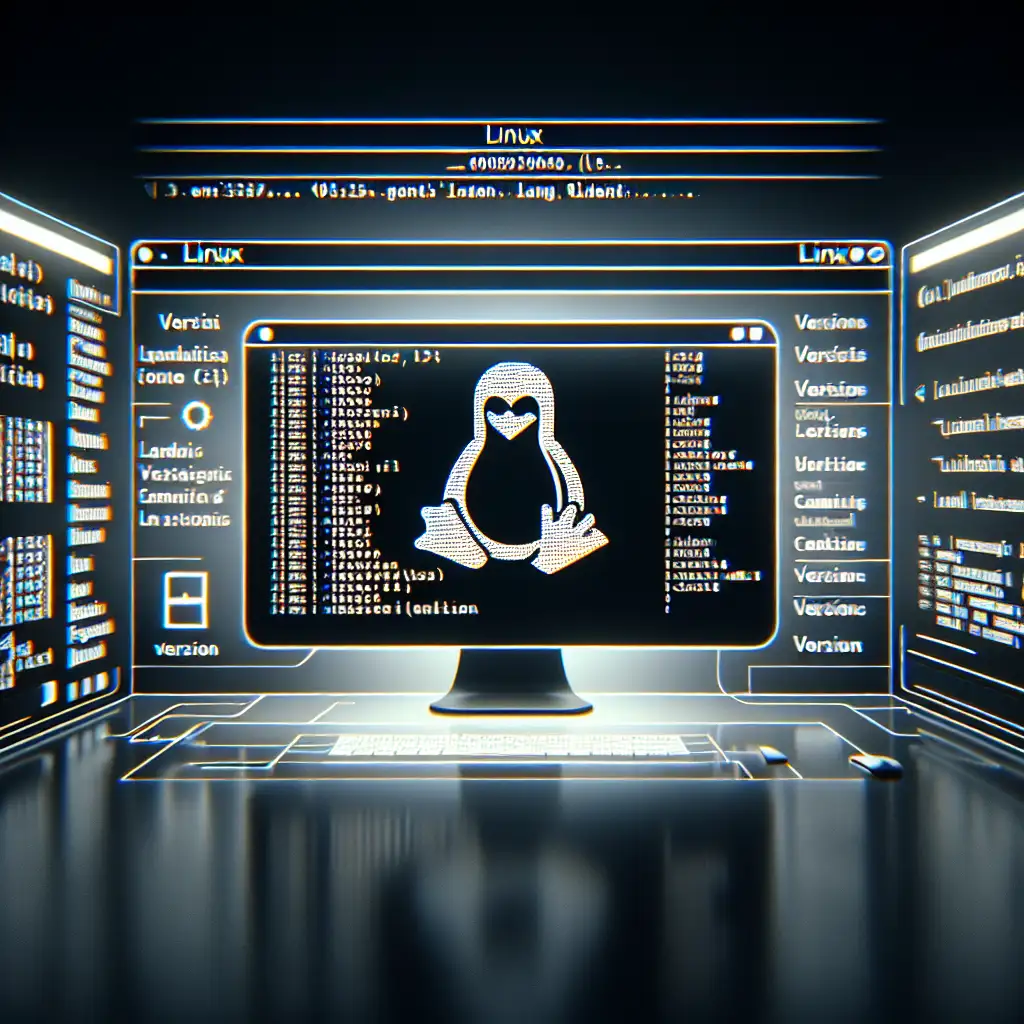Mastering Linux Version Detection: Beyond uname and lsb_release
Identifying the exact Linux distribution and kernel version is a prerequisite for reliable system administration, reproducible debugging, and secure patching. Partial version knowledge can lead to deploying incompatible binaries, chasing irrelevant bug reports, or missing security advisories.
Too often, teams lean solely on uname -a or lsb_release -a—insufficient in many scenarios. Consider a minimal Docker container, a custom embedded system, or a chrooted environment: typical utilities may be absent. This guide catalogs robust, distribution-agnostic, and nuanced tactics for discovering your system identity.
Baseline: What the Obvious Tools Actually Report
Running uname -a:
$ uname -a
Linux staging-app01 5.15.0-70-generic #77-Ubuntu SMP Fri Mar 24 14:05:43 UTC 2023 x86_64 x86_64 x86_64 GNU/Linux
Yields kernel version (5.15.0-70-generic), build number, architecture (x86_64), and build date—yet nothing about the userspace or distribution flavor.
Invoking lsb_release -a (if present):
$ lsb_release -a
No LSB modules are available.
Distributor ID: Ubuntu
Description: Ubuntu 22.04.2 LTS
Release: 22.04
Codename: jammy
Returns OS codename, release, and vendor—but only if the lsb-release package is present (not default on Alpine, stripped-down Debian, or core RHEL containers).
Real-World: Diagnosing Without Standard Tools
/etc/os-release (systemd standard)
Modern distributions—systemd-based Fedora (>19), Ubuntu (>15.04), Debian (>8)—ship /etc/os-release: a key-value data source.
$ cat /etc/os-release
NAME="Ubuntu"
VERSION="22.04.2 LTS (Jammy Jellyfish)"
ID=ubuntu
ID_LIKE=debian
VERSION_ID="22.04"
VERSION_CODENAME=jammy
To parse for automation:
source /etc/os-release
echo "$PRETTY_NAME ($VERSION_ID) [$ID]"
Note: If /etc/os-release is missing, you're likely on legacy, embedded, or heavily customized environments.
Distro-Specific Release Files
Fallback methodology leverages conventional marker files:
/etc/debian_version→11.7/etc/redhat-release→CentOS Linux release 7.9.2009 (Core)/etc/issue/etc/SuSE-release/etc/arch-release
Batch inspection:
for rel in /etc/*release /etc/*version; do
test -f "$rel" && grep -H . "$rel"
done
On some customized distros, only /etc/issue or /etc/release survives; extraction may be messy or deliver only banner text. Evaluate output for ambiguity.
hostnamectl (systemd hosts only)
Machine metadata can be extracted using hostnamectl:
$ hostnamectl
Static hostname: dev-vm1
Icon name: computer-vm
Operating System: Ubuntu 22.04.2 LTS
Kernel: Linux 5.15.0-70-generic
Architecture: x86-64
It synthesizes OS, kernel, and architecture—not available outside systemd, nor inside stripped-down containers or single-purpose appliances.
Package Manager Granularity
Sometimes, kernel or glibc patch levels will matter. For compilation troubleshooting, module debugging, or audit compliance, verify installed package versions.
-
Debian/Ubuntu:
dpkg -l | grep linux-image | grep '^ii'Sample output:
ii linux-image-5.15.0-70-generic 5.15.0-70.77 amd64 Signed kernel image generic -
RHEL/Fedora/CentOS:
rpm -qa | grep kernel-coreReturns:
kernel-core-5.14.12-300.fc35.x86_64
Tip: For SUSE, try zypper se -si kernel-default.
Kernel Build Metadata: /proc/version
In cases where you must attribute a bug to the compiler toolchain or kernel compilation flags:
$ cat /proc/version
Linux version 5.15.0-70-generic (buildd@lcy02-amd64-035) (gcc (Ubuntu 11.3.0-1ubuntu1~22.04) 11.3.0) #77-Ubuntu SMP Mon Mar 27 14:05:43 UTC 2023
Reveals both the exact GCC version used and build host.
Practical Example: Automated Multi-Method Script
Automated troubleshooting scripts should defensively check for each viable source. Example:
#!/bin/bash
echo "Kernel: $(uname -srmp)"
if [ -f /etc/os-release ]; then
. /etc/os-release
echo "OS: $PRETTY_NAME ($VERSION_ID)"
elif [ -f /etc/lsb-release ]; then
. /etc/lsb-release
echo "Distributor: $DISTRIB_ID"
echo "Description: $DISTRIB_DESCRIPTION"
else
# Fallback: attempt grep on all plausible files
grep -HiE 'release|version|NAME|DISTRIB' /etc/*release /etc/*version 2>/dev/null | head -4
fi
echo -n "hostnamectl: "
hostnamectl 2>/dev/null | grep 'Operating System\|Kernel'
Known issue: Environments lacking all these files (tiny images, legacy buildroots) require custom logic or even static heuristics (strings /bin/login | grep -i linux).
At-a-Glance Table
| Method | Returns | Reliability | Caveats |
|---|---|---|---|
uname -a | Kernel version/arch | Always? (*see below) | No distro; minor kernel patches missed |
lsb_release -a | Distro info | If lsb-release installed | Missing on many minimal installs |
/etc/os-release | Distro metadata | systemd-based distros | Absent on old/stripped-down systems |
/etc/*release, /etc/*version files | Distro or generic info | Legacy/unusual/DIY distros | Parsing unreliable, not standardized |
hostnamectl | Distro/kern/jiffy info | systemd only | Unavailable in minimal Docker/busybox |
PKG manager query (dpkg, rpm, etc.) | Package inventory with versions | Distro-specific | Not kernel-agnostic; list may be noisy |
/proc/version | Kernel & toolchain details | Always if /proc available | Not human-friendly; toolchain only |
Note: Even uname -a can be restricted in some container/namespace sandboxes if procfs is hidden or kernel is deliberately obfuscated for container escapes.
Field Notes and Tips
- Many CI/CD images (distroless, Alpine, containers rebuilt with
FROM scratch) do not includelsb_release, nor even/etc/os-release. Expect failures and plan fallbacks in scripts. - For Docker containers, try
docker inspect --format '{{.Os}}' <container>to grab host OS at runtime—but this may not match the kernel. - Systems running non-glibc libc (musl, uClibc) can further complicate detection: relying exclusively on package manager data amplifies the risk of misidentification.
- Occasional cases demand kernel source patch-level checks (
/proc/config.gzif present), but these are rare and more involved.
Conclusion
There is no single authoritative method to enumerate the precise Linux version across all environments—host, container, virtual machine, or legacy physical hardware. A layered, fallback-driven approach is mandatory for robust automation or compliance scanning. Always validate with least three sources if accuracy is paramount.
This landscape will shift further as container distros, minimal images, and composable deployments grow more prevalent.
If a tailored version-detection script for your environment is required, or you encounter an anomaly not covered here, reach out directly.
End of guide.
